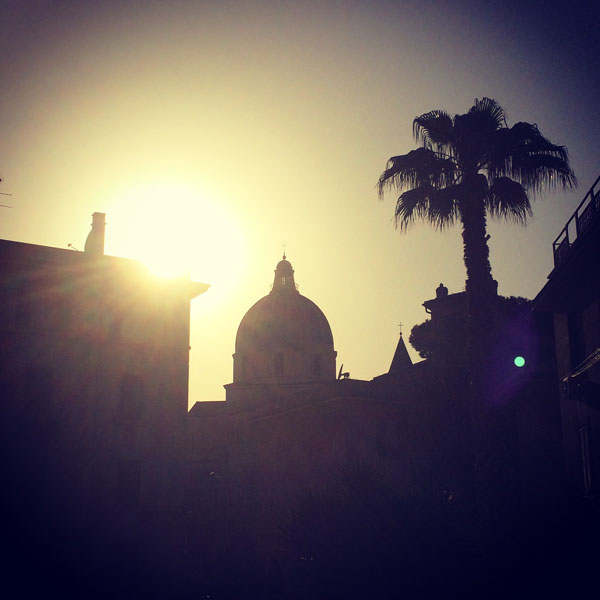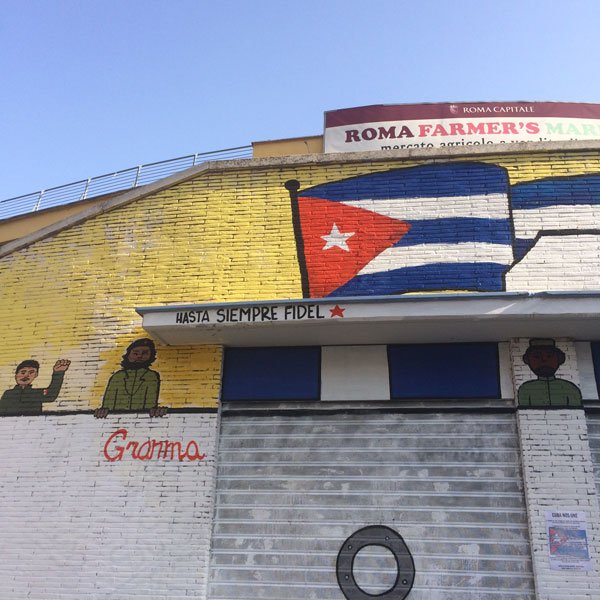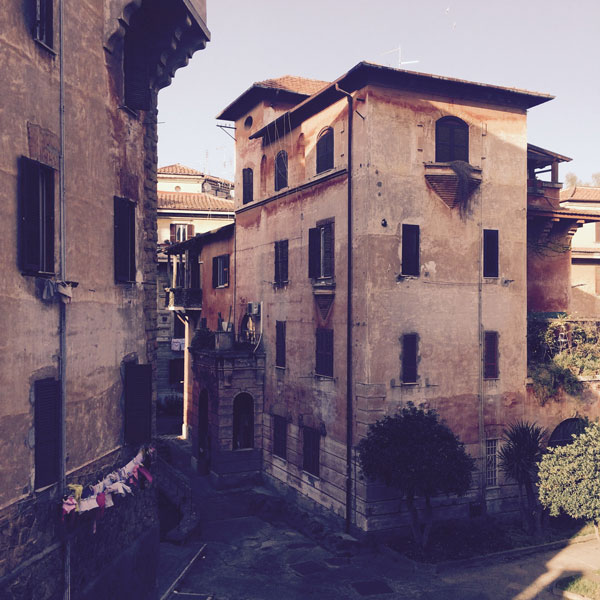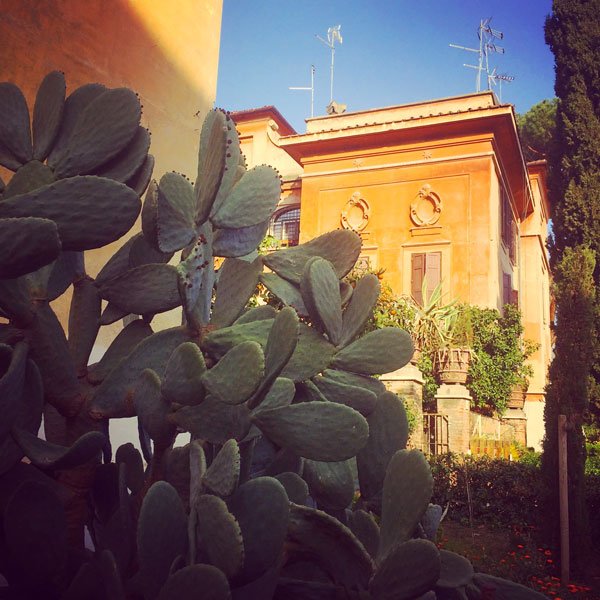Rome by foot - Garbatella quarter
I'm writing this post on the local train that gets to Florence from Tiburtina in almost four hours. But today I do not mind: a beautiful sunny day, and it’s a blessing to look at the beautiful green hills, deep woods and grazing cows that pass in the frame of the window, instead of being attached to the smartphone as often happens on the high speed train, which travels so fast as to leave no time human eye to perceive the lines of the landscape.
I'm coming back from Rome, that needless to say always has a great charm. May be the story, the air, the colors, the light… whatever it is, every time come here i feel charmed, and seizes me a kind of frìzzico ner core (butterfly in the stomach) that does not leave me until I leave the capital.

The opportunity to visit Caput Mundi (head of the world, as Rome it was called) this time is the fiftieth birthday of a dear friend. Before the party there is much to see: “thanks” to the closure of the old town because of at least six political events, another dear friend decided to take me to Garbatella quarter, saying that would I like it very much. I let myself be guided blindly, as I love to do. It takes just over five minutes to get to Garbatella from the metro station that goes by the same name, and after just a handful of seconds you realize that something has changed. There is a different rhythm, everything slows down a little. The impressive Palladium university building, that hosts home of shows and concerts, welcomes with its yellow and its high-sounding red. What a discovery even the Ambra (amber) Theater, adjacent to the large church, though unfortunately provided with another "cool"restaurant inside, that asks ten euros for a salad.
We then pass by to the best local restaurant, Buca degli Angeli.
Continuing, the old Community Center, now also home to the Farmers' Market. The property is decorated and painted with Cuba themes, and we responded to the greeting of the Che, perpetually looking out of the Granma ship.

Here we are in the heart of the old quarter once infamous, and now not only re-evaluated, but coveted. The history of the neighborhood begins just before 1920, precisely November 18, 1918, when King Vittorio Emanuele the Third laid the first stone of the first batch (now there are 62). The neighborhood was to be called Concordia or Remuria, but ended up adopting the popular name, apparently due to the presence of a landlady really nice and polite (that’s what garbato means in italian), even portraited bare-breasted, in a bas-relief on the wall of a building in Piazza Bonomelli.
The intention was to build a village for the families of the workers who were supposed to work on the new river port Ostiense: the project was abandoned, but the works to build the neighborhood, fortunately, not.
Walking in Garbatella is a special experience. The houses are arranged around squares and courtyards, a small town in the city. There is an intention of "inciting social rapports", as probably was common a few decades ago. Spaces for play, low walls to sit in the sun (or shade of an old pine), Exchequer wires in small courtyards, where the hanging washed garments are found to wave along with the warm breeze.
It is a life on a small scale, more human scale, that is consumed between these streets. "Here we all know each other" - tells us a lovely lady, who personally takes care of a garden in one of the lots, stuffed gnomes and statues - "this was the home of my grandfather, then my father and now mine. Imagine that every night I have to go down to turn on the outside lights of the whole neighborhood with a switch (brings us very close to there and opens a door for us to see it). Once I tried to stay at home, sitting by the window to see if it was someone else: no way, noone was doing it in my place!"

Surely the sun warming up and shading pink light all around plays an important role in making me perceive this as an almost fairytale place; certainly it will also have its downsides, but now all I see is a very attractive area different from one yard to the other yet harmonious. Beautiful colors, interesting architecture. It's a mix of styles, with a special mention for the Barocchetto Romano (Roman little Baroque), a maze of stairs and walls, benches, balconies, arches, symmetries and asymmetries. The local cats always find a full bowl of water, scraps of human food or kibble. In fact, they are well fed, almost all white with black patches (an especially prolific cat, I think).
There are aloe plants, prickly pears, flowering trees and wisteria still bare, but not for long. So, for those who will sit down to watch the sunset with the dome of St. Francesco Saverio Church in backlight, to the joy of the eyes will add the sweet scent of another Roman afternoon.

Awesome post
Thanks a lot! I've seen your latest post in Okinawa... are you still there? I have to send couple of clients there, is it good? I've been to Japan twice, but not in Okinawa, hope to go there soon.
You are welcome. Yeah I'm still there, not bad, so far I can just say that is very clean and convenient (food) but can't rely on public transport, better to rent a car.
Awesome post
Gorgeous as all these beautiful travelogue-history-architectural snippets are from you. Cheers.
It's so good to know that you stop by, read and like it :) you're a motivator indeed :D
It's good content ! So it's truly a pleasure. Xx
Nice, informative post about the Garbatella area, which I didn't see on my visit to Rome (but may have a chance to visit next year). Lovely photos, too.
I saw your post on Dynamic Steemians Discord server. :-)
Thank you my friend! When you'll walk through those streets you'll feel the authentic roman quarter feeling...
I look forward to it! Someday...